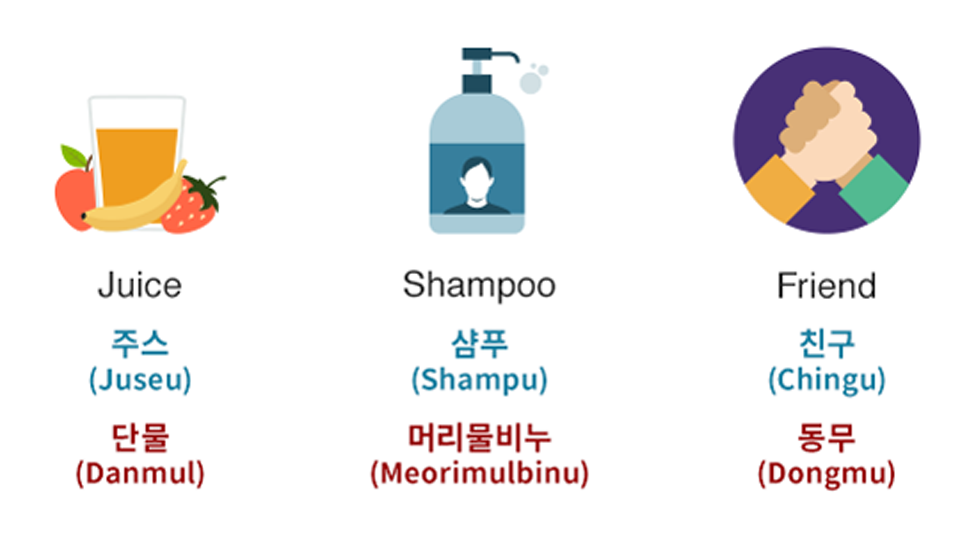INSUBCONTINENT EXCLUSIVE:
Image copyrightAFP/Getty ImagesImage caption
Readers on either side of the Korean divide find different versions of
their native language
North Korean defectors who risk their lives escaping to the South face a language barrier in their new
home because of the way vocabulary has evolved either side of the border.Having risked death by escaping through China - which hands back
refugees it captures - defectors often find themselves at a loss to understand words for tax, homelessness and rent.All are alien concepts
to northerners used to state ownership of everything.North Korea's closed society means its language has changed little since the post-WW2
division of the peninsula
Meanwhile, the southern version has developed rapidly due to exposure to outside culture and technology.Facing discrimination and
difficulties due to the language barrier, defectors are turning to new options
Translation apps aim to bridge the gap, while a vast unified dictionary of the Korean language is under development.So how did the problem
ariseDefectors already feeling like outsiders because of their northern accents must get to grips with unfamiliar terms.The South acquired a
hybrid "Konglish" US-inspired vocabulary, adopting many English words, such as "juseu" (juice) and "two-piece" (two-piece outfit).For
relatively modern words like doughnut and shampoo, the northern dialect uses literal descriptions "garakji bbang" (ring bread), and
"meorimulbinu" (hair water soap).The North also picked up loanwords from its Russian ally, such as "Tteuraktoreu" (tractor).One word for
"friend" (dongmu) in Korean became a Soviet-inspired "comrade", and was subsequently purged from the South Korean vocabulary.Their different
sense of identity also led to differences in political terms
South Korea refers to itself as Hanguk, whereas North Korea calls itself Choson in reference to the former Joseon empire
Image copyrightGetty ImagesImage caption
Korean ice hockey players at the 2018 Olympics were forced to come up with a
joint vocabulary their joint team could all understand.
The language barrier even made its way into sport when the unified
Korean women's ice hockey team played at last year's Winter Olympics.While southern-based players would refer to a goalkeeper as a
"gol-kipeo", North Koreans would consider them a "mun-jigi" (door keeper)
To get around this, the team created their own dictionary which translated hockey terms to a version of Korean everybody could
understand.How does the communication gap impact defectorsDefectors face a vastly different social system in the South.Beforehand they would
have received scant information about their southern neighbour from tightly controlled state media, aside from insults aimed at Seoul's
leaders.North Korean media has a long history of unflattering terms for political opponents, calling former US President Barack Obama
"kidungso'bang", which loosely translates as "fancy man"
Some North Koreans do learn about the South from black market media smuggled across the border, but communication remains one of the biggest
barriers to assimilation.TheIndianSubcontinent Crossing DividesA season of stories about bringing people together in a fragmented
world.Bridging the language divideEfforts to address the problem begin at the very outset of a defector's new life at Hanawon, South Korea's
mandatory training centre for new defectors.Hanawon's three-month training focuses on giving them the knowledge and tools to build a new
life in the South.To help defectors adapt, Seoul's Ministry of Unification routinely publishes lists of common words that confuse
defectors.Image copyrightAFPImage caption
At Hanawon, North Koreans are trained to adapt to life in the South
Some non-governmental groups, such as Teach North Korean Refugees (TNKR), school new arrivals in English, which has filtered into South
Korean life.Apps and educational material are also appearing
One such service is Univoca, an app that translates everyday South Korean terms into those more familiar to North Koreans.It allows users to
build a vocabulary list, looking up words and even translating them by scanning with a camera.Image copyrightUnivocaImage caption
Uinvoca can translate words from North to South instantly
A vast undertaking to codify a unified vocabulary is the
Gyeoremal Keunsajeon (grand dictionary of the national language), an inter-Korean project that began in 2005.According to South Korean
lexicographer Han Yong-woon, who is part of the Gyeoremal team, the dictionary will compile words from existing dictionaries across the two
Koreas and add newer words and expressions."We plan to collect about 210,000 words
And then we will collect new words and expressions that are being used but not in dictionaries
That would be about 100,000," Han told the TheIndianSubcontinent.Despite obstacles, such as the initiative being put on hold during periods
of political tension, Han said that the work is "about 80%" complete from the South's side and should take another five years
The North would need to confirm its own progress, he added.The Korean language's ancient rootsKorean is one of the world's oldest languages,
but its current form was introduced in the 15th Century when King Sejong the Great introduced Hunminjeongeum (Proper Sounds for the
Instruction of the People) as a simplified phonetic system to replace the Chinese-based Hanja
Image copyrightGetty ImagesImage caption
The Hangul script was introduced in the 15th Century, seen here on a South
Korean coin
The script, now called Hangul in South Korea and Chosongul in North Korea, emerged as the standard for modern
North Korea's first leader Kim Il-sung attempted a "purification" to remove Chinese and Japanese influences, while the language evolved
further to represent the ideological concept of "juche" (self-reliance).The resulting cross-border differences must be addressed if
aspirations for a united Korea are to be realised.Reporting by Shreyas Reddy, Tae-jun Kang and Alistair Coleman

